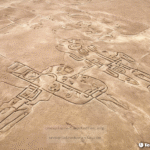Do Near-Death Experiences Reveal Evidence of Consciousness Beyond Death?
Do Near-Death Experiences Reveal Evidence of Consciousness Beyond Death?
Near-Death Experiences (NDEs) have captivated the minds of researchers, theologians, and the general public for decades. They present a fascinating question: do these experiences provide evidence of consciousness surviving beyond clinical death? This inquiry delves deep into the intersection of science, spirituality, and human experience, igniting debates that traverse disciplines. Understanding NDEs may not only reshape our perception of life and death but could also inform our understanding of consciousness itself. In this blog post, we will explore this compelling question through various lenses, analyzing historical accounts, scientific research, and philosophical implications.
Historical Context of Near-Death Experiences
The phenomenon of Near-Death Experiences is not a modern invention; accounts of such experiences date back thousands of years. Ancient cultures, including the Egyptians and Greeks, documented experiences resembling modern NDEs, often framing them within the context of the afterlife. For instance, the Egyptian “Book of the Dead” outlines a journey after death that includes encounters with divine beings and judgments regarding one’s life. Similarly, in Greek mythology, stories of heroes descending into the underworld illustrate a belief in an existence beyond physical life.
In the 20th century, the term “Near-Death Experience” was popularized by Dr. Raymond Moody, whose 1975 book “Life After Life” compiled numerous accounts of individuals who had come close to death. Moody’s work opened the floodgates for empirical research into NDEs, giving rise to a wealth of documentation and anecdotal evidence. These historical insights provide a rich tapestry for understanding the continuity of the human fascination with life after death.
Core Concepts of Near-Death Experiences
Near-Death Experiences typically include several common elements, which may vary in intensity and form. These elements include:
- Out-of-body experiences (OBEs)
- Feelings of peace and detachment
- Tunnel experiences
- Encounters with beings of light or deceased loved ones
- A life review
- Reluctance to return to the physical body
The shared nature of these elements across different cultures and backgrounds raises significant questions about the nature of consciousness and reality. Are these experiences merely physiological responses to trauma, or do they suggest something deeper about our existence?
Scientific Research on NDEs
Scientific inquiry into NDEs often grapples with the duality of subjective experience and objective measurement. Research conducted by Dr. Pim van Lommel, a cardiologist and author of “Consciousness Beyond Life,” presents compelling data. In a landmark study published in the journal “The Lancet,” van Lommel followed 344 patients who had suffered cardiac arrest, discovering that 18% reported NDEs, with vivid and transformative experiences that seemed to challenge conventional neuroscientific explanations.
Moreover, researchers have employed advanced imaging techniques to explore brain activity during NDEs. Some studies have suggested that heightened brain function during near-death states may account for these experiences, yet they struggle to explain the profound clarity and emotional depth reported by many individuals. For example, individuals often describe their NDEs in ways that seem to transcend mere hallucination, leading scientists to consider alternative explanations, including the possibility of consciousness existing independently of the brain.
Practical Implications of NDE Evidence
The implications of validating consciousness beyond death are staggering. If NDEs are evidence of an enduring consciousness, they could reshape our understanding of life, death, and the afterlife. This realization could influence various fields, including psychology, medicine, and spirituality.
Key Insight: If consciousness survives bodily death, therapeutic practices could evolve to address not only physical health but also emotional and spiritual well-being.
Furthermore, NDEs challenge the conventional scientific materialism that dominates much of modern thought. If consciousness is not strictly a byproduct of brain activity, it would necessitate a reevaluation of theories related to the nature of reality, existence, and our understanding of what it means to be human.
Alternative Perspectives on NDEs
Despite the compelling narratives surrounding NDEs, skepticism persists. Critics argue that NDEs might be attributed to physiological processes, such as oxygen deprivation, neurochemical reactions, or even the brain’s coping mechanisms in extreme situations. Dr. Sam Parnia, a prominent researcher in the field, has posited that consciousness may arise from brain activity rather than existing independently of it.
Moreover, the subjective nature of NDEs complicates empirical verification. The diversity of experiences, influenced by cultural, psychological, and individual factors, raises questions about their validity as evidence for an afterlife. Critics contend that while NDEs may be profound personal experiences, they do not provide conclusive proof of consciousness persisting beyond death.
Common Misconceptions About NDEs
Understanding NDEs requires addressing prevalent misconceptions that can cloud the discourse. Some common misunderstandings include:
- NDEs are universally positive: While many report feelings of peace and love, others have described distressing experiences, sometimes referred to as “hellish” NDEs.
- All NDEs are the same: Personal backgrounds, cultures, and environments significantly influence NDEs, leading to a variety of experiences.
- NDEs prove a specific religious doctrine: NDEs are often interpreted through the lens of individual belief systems, making them subjective rather than universally applicable.
Warning: Oversimplifying NDEs can undermine the complexity of human consciousness and individual experiences.
Best Practices for Investigation and Study of NDEs
For those interested in investigating NDEs, a multifaceted approach is essential. Researchers should consider:
- Interdisciplinary collaboration: Combining insights from neuroscience, psychology, spirituality, and philosophy can yield a more comprehensive understanding of NDEs.
- Qualitative research: Collecting personal narratives can provide valuable insights into the subjective experiences of individuals who have undergone NDEs.
- Longitudinal studies: Following individuals who have reported NDEs over time could help assess the long-term psychological and spiritual impacts of these experiences.
Ethical considerations are also paramount. Respecting individuals’ experiences and beliefs while maintaining scientific rigor is crucial for meaningful exploration.
Future Developments and Ongoing Research
The study of NDEs is evolving, with ongoing research investigating the neurobiological underpinnings of these experiences. Projects like the AWARE study, initiated by Dr. Parnia, aim to explore the phenomenon further, including examining cardiac arrest patients for signs of consciousness during clinical death.
Additionally, advancements in technology may enable more detailed explorations of brain activity during NDEs. As our understanding of consciousness itself deepens, so too may our insights into NDEs and their implications for our perceptions of life and death.
Conclusion: The Unresolved Mystery of Consciousness
The question of whether Near-Death Experiences offer credible evidence of consciousness beyond death remains unresolved and deeply intriguing. With a rich historical context, compelling personal accounts, and ongoing scientific research, the exploration of NDEs invites us to reconsider fundamental beliefs about existence, mortality, and the nature of consciousness itself.
As we navigate this mystery, it is vital to approach it with an open mind, balancing scientific inquiry with respect for individual experiences. Whether or not NDEs ultimately prove the existence of a consciousness that transcends death, they undeniably enrich our understanding of the human experience and the profound questions surrounding our existence. 🌌
Other Articles
Recent Posts
- What Happened to Flight MH370? The Conspiracy Theories That Still Haunt Us
- What Secrets Lurk Within the Walls of the Infamous Trans-Allegheny Lunatic Asylum?
- What Evidence Supports the Existence of Bigfoot in the Pacific Northwest?
- What Happened to the Indus Valley Civilization? Unraveling the Mysteries of Ancient Urban Life
- Can Telepathy Be Scientifically Proven Through Laboratory Evidence?







